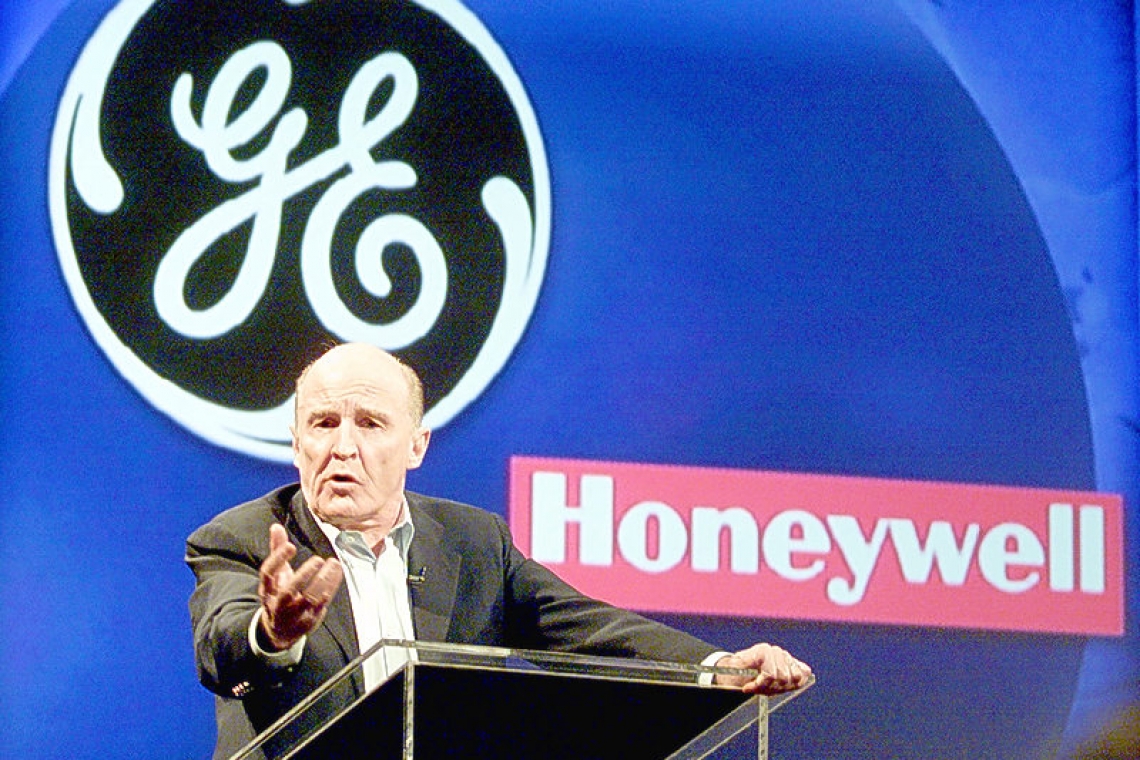NEW YORK--Jack Welch, who upended the business world in the 1980s and 1990s by transforming General Electric Co from a stolid maker of light bulbs and washing machines into the most valuable U.S. public company, has died at 84, GE said on Monday.
Known as "Neutron Jack" for cutting thousands of jobs, Welch bought and sold scores of businesses, expanded the industrial giant into financial services and produced steadily rising profits. His success led other CEOs to begin using financial wizardry to improve earnings and wow Wall Street.
In Welch's 20 years as CEO, GE's market value grew from $12 billion to $410 billion, making him one of the most iconic corporate leaders of his era. "When the book about business leaders in this century is written, Jack Welch will be near the very top," said Thomas Cooke, professor at Georgetown University's McDonough School of Business. "What he did as the leader of GE was remarkable."
President Donald Trump tweeted: "There was no corporate leader like “neutron” Jack," adding his warmest sympathies "to his wonderful wife & family!"
But Welch's innovations, which included ruthless personnel management, cost cutting and offshoring, also set the stage for problems that would hit the company years after he left.
John F. Welch, Jr., followed Reginald Jones as CEO in April 1981 and served in that role until he retired in September 2001, choosing Jeff Immelt as his successor. Two of Welch's other top disciples - and Immelt rivals - left GE to head other major companies, helping spread Welch's gospel: Jim McNerney at Boeing Co and Bob Nardelli at Chrysler and Home Depot Inc.
"Today is a sad day for the entire GE family," current GE Chairman and CEO Larry Culp said in a statement. "Jack was larger than life and the heart of GE for half a century. He reshaped the face of our company and the business world."
The outsized financing business Welch built nearly toppled GE during the 2008 financial crisis, requiring a bailout from legendary investor Warren Buffett. Immelt sold most of GE Capital and GE now trades at a fraction of its peak value.
The stock closed at $11.21 on Monday, up 3%. It peaked at $57.68 in August 2000, according to Eikon data from Refinitiv.
Welch acquired new businesses and did not hesitate to use layoffs and outsourcing to streamline them, sometimes leaving shattered, embittered communities behind. He faced criticism - particularly after he retired from GE - for his cavalier attitude about offshoring and shutting U.S. plants, a theme that has grown more potent since the election of President Trump.
The U.S. industrial belt is dotted with communities devastated by GE's downsizing. At its peak, for instance, GE employed 30,000 at a sprawling integrated industrial plant in Schenectady, New York, that now employs fewer than 3,000.
Both Welch's style of management and the strategy he pursued to expand GE have since fallen from favour. CEOs who order mass layoffs now get attacked in tweets from the Oval Office, and Wall Street has lost its appetite for conglomerates.
Welch also made GE a training ground for business leaders and advocated aggressively ousting poor performers. In a 2001 New Yorker interview, he said, "If they're in the bottom 10, they get zero raises, zero stock options, they don't get a bit of bonus, they get zero."
Thomas F. O'Boyle, author of the 1998 book "At Any Cost: Jack Welch, General Electric, and the Pursuit of Profit," was an early critic of Welch's tenure. In an interview on Monday, O'Boyle said: "You have to look at the totality of what occurred based on the strategy Welch initiated: the de-emphasizing of manufacturing, offshoring as many jobs as possible, and emphasizing financial services in GE Capital for earnings growth."
O'Boyle noted that 80% of the some 1,000 acquisitions under Welch were in financial services. "And that strategy had terrible, terrible consequences for General Electric in the long run."
In 1980, the year before Welch became CEO, GE recorded revenues of $26.8 billion; in 2000, the year before he left, they were nearly $130 billion. In 2001, GE was one of the largest and most valuable companies in the world, up from America's tenth-largest by market cap in 1981.
Yet today, GE has sold most of the divisions Welch added, and many fault him for much of GE's recent decline. "He was lauded in business schools, and many CEOs considered him a role model, but few today would praise his tactics," said Erik Gordon, assistant professor at the University of Michigan's Ross School of Business. "He left a bloated, hollow mess to his successors. GE went from being a titan of industry to a dismembered wreck."







